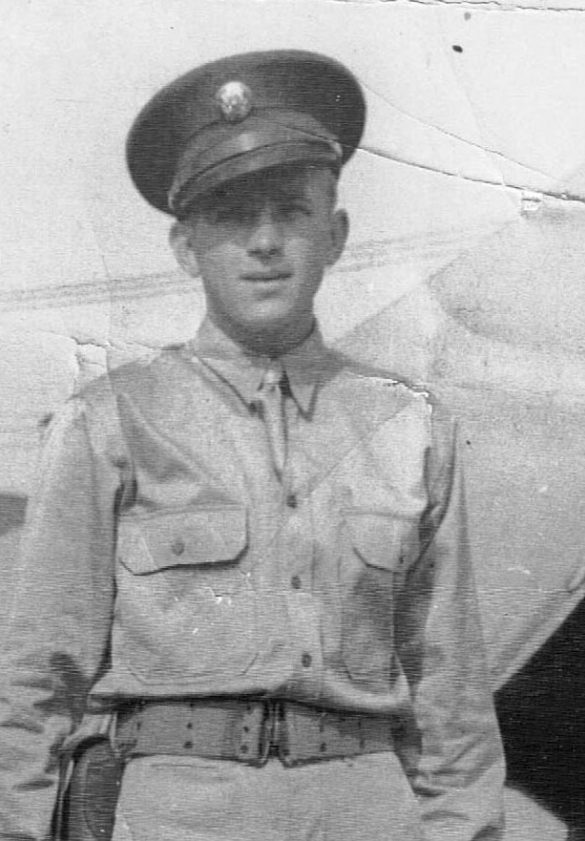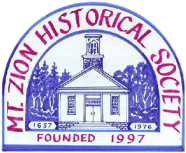Remembering
Private Steven "Abe" Frederick Luchuck (1917 - 1942)


5th Army Air Force, WWII - Bataan Peninsula, Ground Crew, Purple Heart, KIA

Remembering - Private Steven Frederick Luchuck - MZHS "Hero of Air Power"
The MZHS’s original intent was to honor ground crew members as a group not by a specific individual. However, an extra- special ground crew member was identified who gave the ultimate sacrifice as a WW2 Army Air Corps airman in a Japanese POW camp. Based on these extraordinary circumstances of the Battle of Bataan, the MZHS believed he deserved to be honored with his other Army Air Forces heroes in its Bennett’s Valley “Heroes of Air Power”.
Steven “Abe” F. Luchuck was the son of Michael and Kathryn Lalusiak, immigrants from Czechoslovakia, who lived in Byrnedale (in the old Turley home) when Steven was born in 1917. His father Michael had worked at the coke ovens in Byrnedale. The Lalusiaks, who Americanized their name to Luchuck, moved to the Mill Run area when Steven was about 11 years old.
Having worked in the coal mines after graduating from Huston High School in 1935, Steven enlisted in the Army Air Corps in June, 1941, at 24 years of age, completed basic at Bolling Field near Washington DC, on to Savannah, Georgia, and then was stationed in the Philippines as a ground crew member in the Pacific’s Far East (Fifth) Air Force, 27th Bombardment Group, Headquarters Squadron.
The Pearl Harbor attack occurred on that infamous day of December 7, 1941, that we know. But many of us don’t know that the day after; Japan began their invasion of the Philippines and its Bataan Peninsula. The 27th Bombardment Group (the ground echelon) including Pvt. Steven Luchuck, received the unique assignment to help defend the Bataan Peninsula as the 2nd Battalion Provisional Infantry Regiment (Air Corps). By April 9, 1941 its commander, General Wainwright, saw the inevitable and surrendered to the Japanese ending the Battle of Bataan. The entire group became the only Army Air Forces unit ever to fight as an infantry unit. They became POWs and a part of the infamous Bataan Death March. Steven survived the Death March and by April 24th ended up in Camp O’Donnell, a Japanese POW camp in the Philippines. He was reported missing on June 6, 1942 (his family thought he died during the Death March), but later in 1946 the Army declared that he had died in the POW camp from dysentery on June 10, 1942. His brother Michael also joined the Army Air Forces in WW2 after Pearl Harbor in January 1942. With hopes of finding Abe, his sister Suzanne Luchuck joined the Army Nurses Corps in July 1942 hoping to be assigned to the Pacific. She did not get to the Philippines until after her brother had died.
Pvt. Steven Luchuck was buried in the Manila American Cemetery and Memorial (aka Fort McKinley Cemetery) in the Philippines. He received the Purple Heart, the POW Medal, the Philippine Presidential Unit Citation, and other ribbons. All Americans that died on the Death March or at POW Camp O’Donnell are commemorated in the Philippines at the Battling Bastards of Bataan Memorial. His family honored his life with a memorial stone in the St Joseph Cemetery. The MZHS is proud to honor our ground crew hero Pvt. Steven “Abe” F Luchuck as one of its own special “Heroes of Air Power”.
Private Steven Luchuck (1917 - 1942)
By - Ruth Gregori (2011)
Steven Frederick Luchuck was born May 13, 1917 in Byrnedale, a son of Michael and Katherine (Kalusny) Lalusiak, later changed to Luchuck. In 1928, the family moved to Mill Run. The children were Kate, Adam, Mike, Sue, Steve and Mary. Steven was known as “Abe” from childhood.
Abe attended a one- room school in Mill Run and graduated from Huston Township High School with the Class of 1935. His classmates characterized him as a “jokester” and “always playing around.” After graduation, Abe worked on the family farm and in the coal mines.
His niece, Evelyn Fauls, remembers Uncle Abe as being fun. He would pick her up high over his head to touch the ceiling. What fun for a child! Abe’s mother was not even five feet tall and he would swing her around until she would shout “STOP” in Slovak.
At age 24, Abe enlisted in the Army Air Corps on June 6, 1941. He went to basic training at Bolling Field near Washington D.C. His sister, Sue, was a nurse in Pittsburgh and would send him a dollar or two to buy stamps or personal items. Sue kept all the letters that Abe wrote to her. Those letters tell of a young man who missed his family, but who wanted to do a good job. He was assigned as a ground crew member of HQ Squadron of the 27th Bombardment Group (Light) when his unit was sent to Savannah, Georgia for dive-bomber and ground staff training.
Hostilities between the United States and Japan were escalating. In late November 1941, the pilots and ground crew members of the 27th were sent to the Philippines to prepare for the arrival of their planes which were coming by ship.
When the Japanese attacked Pearl Harbor on December 7, 1941 and the Philippines on December 8, the planes had not yet arrived. Then the ship was diverted to Australia due to the attack. After the invasion of the Philippines, General Douglas Mac Arthur and the pilots were evacuated by submarine to Australia to prepare for battle.
Abe was able to send a telegram in December 1941 to wish his parents a Merry Christmas and tell them he was well. His last letter to his parents, dated February 8, 1942, was censored, but he tried to reassure them and tell them not to worry. He said, “Everything is in God’s hands”.
When the Japanese had invaded, the American and Filipino soldiers had retreated to the Bataan Peninsula. Supply boats were unable to reach them. Without adequate food and medical supplies, the men became sick with tropical diseases, such as malaria and dysentery. Their food supplies were cut in half and then in half again. The ground crew of the 27th that were left behind formed the 2nd Battalion Provisional Infantry Regiment (Air Corps). It became the only Air Force unit in history to fight as an Infantry Regiment. The airmen of the 27th would later be awarded the Philippine Presidential Unit Citation and the pilots were among the most decorated of World War II.
With little hope left and exhausted, both physically and mentally, from months of constant bombardment from the Japanese and lack of proper rest, food and medical supplies, General Edward King surrendered his troops at Bataan on April 9, 1942.
The prisoners were then forced to march 60 miles to the Prison Camp in the tropical heat without food or good water. Those men unable to keep up either died right there or were killed by the Japanese. The harsh treatment and deaths of so many prisoners caused this march to be known as the “Infamous Bataan Death March”. When the Philippines were surrendered on June 10, 1942, Steven Luchuck was then reported as “missing in action”. After two years, the War Department declared his death as May 8, 1944.
His Gold Star mother died November 7, 1944, never really knowing the fate of her son. Worrying about him had caused serious health issues. After the War ended, Abe’s father received a letter in September 1945 that officially declared Pvt. Steven F. Luchuck had died June 10, 1942 from dysentery at Camp O’Donnell while a prisoner of the Japanese. He was posthumously awarded the Purple Heart Medal and the Prisoner of War Medal.
In a letter to the family, General Douglas MacArthur wrote,” You have my consolation in the memory that he, along with his comrade-in-arms, who died at Bataan, Corregidor and in prison camps, gave his life for his country. It was due to their magnificent courage and sacrifices which stopped the enemy in the Philippines and gave us time to arm ourselves for our return to the Philippines and the defeat of Japan.”
Pvt. Steven Luchuck is buried in the U.S. Armed Forces Cemetery located in Manila, P.I. The cemetery is dedicated to the memory of the dead of World War II. His name is also on the Battling Bastards of Bataan Memorial that commemorates all the Americans who died on that Death March and in the Prison Camps at Camp O”Donnell. Thank you for your sacrifice and service to our country.
The names of Steven, Michael and Suzanne Luchuck are on the Veterans of World War II Honor Roll in Hollywood. A memorial stone with Steven’s name is in the St. Joseph’s Cemetery in Force. Abe’s brother Mike also served in the Army Air Corps during World War II. His sister Suzanne enlisted in the Army Nurse Corps and retired as a Lieutenant Colonel in 1965, having served during World War II, Korea and Vietnam. Their brother Adam had died tragically in 1930. Two young men returning home at night found his dismembered body on the railroad tracks. It was assumed he had tried to catch a ride on the train and missed. The sister, Kate Thomas, died in DuBois at age 99. His sister, Mary Rio, now lives in Bellefonte.
Lest we forget…
